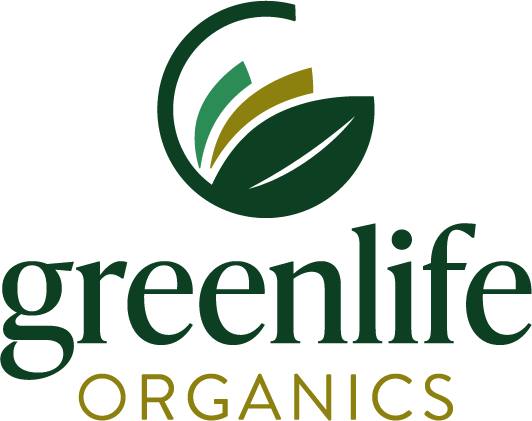The Top 25 Environmental Benefits of Industrial Hemp
Did you know 75% to 90% of all paper was made from Hemp until the late 1800's? Hemp is great for the planet. Explore the Top 25 Environmental Benefits of Industrial Hemp:
#1. Cleans Soil of Heavy Metals
The Nova Institute states, “Hemp cleans soil by absorbing toxins, metals and pests like fungi and nematodes.”
#2. Decontaminates Radioactive Soil
Because Hemp absorbs impurities from soil, it was effective to decontaminate radioactive Chernobyl Soil and is now being considered to detoxify soil from the Fukushima Nuclear Disaster.
#3. Hemp Cloth is Stronger Than Cotton
Not only is Hemp Cloth stronger than cotton, it is a warmer and higher absorbing material.
#4. Can End Fossil Fuel Dependenc
Hemp can be used to make "Biomass Fuels" which can replace gas, oil and coal energy. Lynn Osburn, Biomass Energy Expert, claims "1.5 to 3.5 million acres of Hemp can replace all of Canada's fossil field demands."
#5. Net 0 CO2 Emissions
Because Hemp Biomass Fuels create a "closed CO2 System," they do not release sulphur oxides into the atmosphere.
#6. High Heating Value With No Sulphur
The heating value of Biomass Fuels can offer up to 8,000 BTU/lb. with zero residual sulplur and ash during combustion.
#7. Greater Crop Yields
Hemp increases crop yields by creating optimal soil conditions. A 1998 study showed that following Hemp cultivation, wheat crop yield increased by 20%.
#8. Repairs Damaged Ecosystems
Hemp can play a role in the repair of damaged ecosystems, as it is considered a pioneer plant. Hemp can restore contaminated land by pulling toxins out of the soil.
#9. Removes Impurities from Water
A 2016 study showed Hemp’s efficacy to remove zinc from water.
#10. Hemp Does Not Need Pesticides in Order to Grow
Hemp is a disease-resistant plant, so it does not require pesticides in order to grow and thrive.
#11. Promotion of Agrobiodiversity
According to this study, Hemp is among the top five best crops in terms of Agrobiodiversity. This is important, as the Food and Agriculture Organization of the United Nations has explained that agrobiodiversity contributes to sustainable farming, disease management, and efficient use of the environment and its resources. Agrobiodiversity is also economically beneficial and improves productivity, nutrition, and food security.
#12. Environmental Friendliness of Hemp Plastics
Hemp products are less harmful to the environment. Research from the Nova Institute has found that Hemp-based plastic products are more energy-efficient and result in reduced greenhouse gases when compared to conventional products.
#13. Non-Toxic Paper Production
The Reason Foundation states paper made from trees involves the use of toxic sulfur compounds, which are not required to make Hemp Paper.
#14. Reduced Use of Nitrogen Fertilizer
“Hemp requires less nitrogen fertilizer when compared to crops such as cotton”, states the Reason Foundation. Nitrogen damages the environment by polluting water and soil. Hemp can be seen clearly as an eco-friendly alternative to cotton.
#15. Hemp Paper Can Be Recycled 7 to 8 Times
According to scientists at McGill University, paper produced from Hemp can be recycled 7 to 8 times, whereas the typical paper made from wood can be recycled just 3 times.
#16. Hemp Paper Does Not Require Bleach
Hemp-based paper does not require Chlorine Bleach. This is a great benefit because Chlorine Bleach releases dioxins into the environment.
#17. Produces 1,000 lbs. of Fiber per Acre
1 Acre of Hemp will produce 2 to 3 times more fiber than cotton. This factors out to almost 1,000 pounds of fiber per acre.
#18. Ending Deforestation
According to the Union of Concerned Scientists, about one-tenth of deforestation is a result of the production of wood products, including paper. Hemp-based paper can be made for less than 3% of the price compared wood-based paper pulp and paper mills can immediately begin to produce Hemp-based paper because they need very little to convert to Hemp.
#19. Hemp Requires Less Acres for Producing Paper
Where it takes 4 acres of trees to create enough pulp to make paper over a 20 year period, it only takes 1 acre of Hemp.
#20. Hemp Fiber is Natural and Organic
Unlike petroleum-based synthetic fibers, Hemp Fiber used to make clothing is highly recyclable and is most importantly natural and organic.
#21. Uses 85% Less Acid to Make Paper
Paper mills can use up to 85% less Sulphur-based acid to make paper compared to wood.
#22. Sustainable Fabrics and Textiles
80% of all fabrics and textiles for clothes, canvas, cordage and linens were made from Hemp until the 1820's when it was made illegal.
#23. Hemp Seeds Can Feed Farm Animals
Hemp Seeds are the 2nd highest protein source compared to Soya Beans. Because a Hemp Plant contains 1/2 of it's dry weight in seeds, Hemp Seeds could be a sustainable way to feed farm animals.
#24. Hempcrete Has Impressive Benefits Compared to Concrete
Hempcrete is a better insulator and moisture regulator than traditional lime concrete. It is also carbon neutral. The major downfall of Hempcrete is that it isn’t considered strong enough to be structural, not yet at least.
#25. New Agriculture Jobs
50% of all pesticides used in the United States are for cotton. Hemp provides a natural path to reduce pollution while providing an extensive use of recyclable products. Shifting from cotton to Hemp could provide new jobs for rural America.
Key Notes
Hemp…
helps clean soil of contaminants.
creates cleaner products.
necessary for sustainable life and farming.
could provide new jobs for rural America.
Take Action
Industrial Hemp provides many practical uses that contribute to a sustainable future, explore our premium CBD Products made from 100% USA Organic Hemp.
Thank you for taking the time to read this article, please contact us with any questions.
To your Health,
Greenlife Organics
